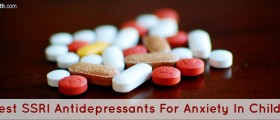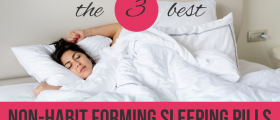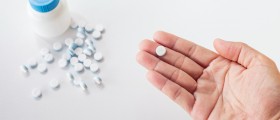A tension headache is the most common class of headaches, but the causes are still not fully understood. It includes pain of soft to medium intensity, which is often described by patients as a feeling similar to having a firm belt around the head. Patients often feel that the muscle contractions are accounted for the pain, but there is no medical proof for that. Therapy of tension headaches includes the processes of nurturing a healthy lifestyle, proper non-drug treatment, and using the right medications.
Some patients opt for a non-medical treatment. The overuse of over-the-counter (OTC) medications can provoke more headaches.

Which Types of Medications Are Used
Both OTC and prescription medications can be used in relieving the pain.
Nonsteroidal anti-inflammatory drugs (NSAIDs) from the class of analgesics are often the first choice for pain therapy. OTC NSAIDs that are often used are Aspirin, ibuprofen, and naproxen. The most common prescription NSAIDs are indomethacin and ketorolac.
Acetaminophen and Aspirin can often provoke overuse headaches, so they are scarcely used. They can be combined with caffeine or a sedative drug to gain better results. An analgesic-sedative combination is taken by prescription because they can provoke chronic headaches and addiction.
Triptan is used for patients with a combination of migraines and episodic tension headaches. Opiates are seldom in use because of their side effects and the development of an addiction. Pain medications just alleviate the symptoms for a limited amount of time, with time, their effect is lessened and they can even be the cause of headaches. To prevent that, it is advised not to take OTC medications more than nine days a month. One should be careful about the possible side effects of every medication.
Preventive medications can lessen the incidence and severity of the attacks. They can be introduced into the therapy if the patient encounters chronic pains that are not relieved by standard medications or non-drug therapy. They can also be prescribed if the pain becomes disabling or acute pain relievers cannot be taken because of various medical conditions.
Antidepressants can also be used for chronic states, they do not relieve the pain but rather balance the level of brain chemicals like serotonin which are sometimes the cause of headaches.
The most commonly used preventive medications are:
1. Tricyclic antidepressants (amitriptyline, nortriptyline) for all types of headaches. They have numerous side effects, for example, gaining weight and dizziness.
2. Selective serotonin reuptake inhibitors (SSRIs) like paroxetine (Paxil), venlafaxine (Effexor), and fluoxetine (Prozac) possess a smaller number of side effects than tricyclic antidepressants, but they are less efficient.
3. Anticonvulsants.
4. Muscle relaxants.
Preventive medications need some time to show their full effect, so they should be taken for a couple of weeks.
- All available medical reference systems were screened for the range of clinical studies on TTH. The findings in these studies were evaluated according to the recommendations of the EFNS resulting in level A, B or C recommendations and good practice points.
- Non-drug management should always be considered although the scientific basis is limited. Information, reassurance and identification of trigger factors may be rewarding.
- Electromyography (EMG) biofeedback has a documented effect in TTH, whilst cognitive-behavioural therapy and relaxation training most likely are effective. Physical therapy and acupuncture may be valuable options for patients with frequent TTH, but there is no robust scientific evidence for efficacy.
- Simple analgesics and non-steroidal anti-inflammatory drugs are recommended for the treatment of episodic TTH.
- Combination analgesics containing caffeine are drugs of second choice. Triptans, muscle relaxants and opioids should not be used. It is crucial to avoid frequent and excessive use of analgesics to prevent the development of medication-overuse headache.
- The tricyclic antidepressant amitriptyline is drug of first choice for the prophylactic treatment of chronic TTH. Mirtazapine and venlafaxine are drugs of second choice. The efficacy of the prophylactic drugs is often limited, and treatment may be hampered by side effects.













_f_280x120.jpg)



Your thoughts on this
Loading...